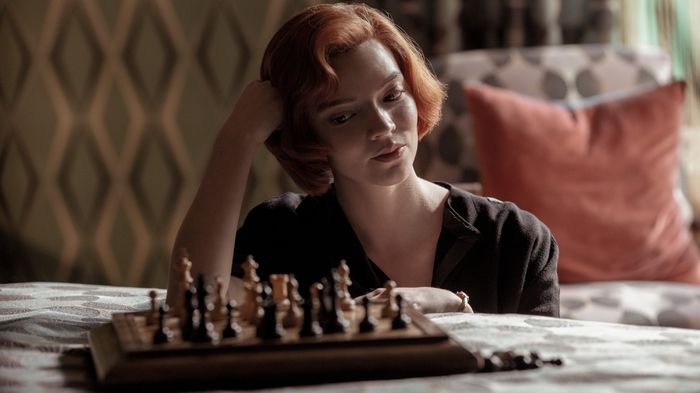The Wholly Predictable Demise of Utopia’s American Remake
Rohan Sharma recalls the underrated genius of Channel 4′s Utopia, and pinpoints the failures of its attempted American remake.
The opening scene to Dennis Kelly’s Utopia is the most shocking first three minutes I have seen in a television show. It is also possibly the most captivating, and perfectly sets the tone for one of the most disturbing yet compelling British shows released this century. It is a series that sticks long in the memory, as much for its uncompromising violence as for its gorgeous colour palettes and frenetic, gripping score. Couple these elements with a vast, spiralling plot detailing a far-reaching viral conspiracy that feels oh-so-relevant in the current climate, and the result is one of the best thrillers of the last two decades.
“The opening scene to Dennis Kelly’s Utopia [...] perfectly sets the tone for one of the most disturbing yet compelling British shows released this century.”
And despite this, Utopia never really gained enough popularity to propel it past the status of cult classic. It was a show which refused to shy away from controversy. Usually this surrounded the aforementioned gore, which at times bordered on sadistic in its usage, but there were other notable contentions. The second season famously received a vitriolic zero-star review from the Daily Mail, who declared its portrayal of Thatcher’s government “malicious and obscene”. Yet Utopia retained an impassioned, if small, following, and received a 2014 Emmy for Best International Drama. That same year, it was axed due to its low ratings.
Popular or not, Utopia’s cancellation felt premature for a show of such high quality. So, when it was announced there would be a long-touted American remake of the show, I was quietly excited. Sure, American remakes tend to oscillate between the inspired (see: The Office) and the genuinely unwatchable (see: all other American remakes). But with the broodingly brilliant David Fincher at the helm and the revamped series set to become part of HBO’s superb catalogue, it seemed to be in relatively safe hands. Unfortunately, the news proved too good to be true, with the show shelved again for several years until Amazon finally decided to pick it up, tasking Gone Girl author and screenwriter Gillian Flynn with the adaptation.
Utopia 2.0 was finally released this September, yet viewers had barely had time to digest the new take on the show before Amazon announced its cancellation in November, after a mere eight episodes.
The opening scene alone is enough to see why. The British Utopia was striking and fearless in its ambition. Each element of the show was perfectly tuned to create a world as vivid, intriguing and arresting as that of the comic book its characters pursued. With Flynn’s remake every potential rough edge is sanded off, leaving the show safe and soulless. It occasionally makes passes at originality, for example the colourful graphics plastered throughout the episodes, but ultimately does little to make itself feel like anything more than a tacky Stranger Things knock-off.
“The humour is cringe-worthy and forced, mainly consisting of contrived references to TikTok and Facebook, as if coming from a writers’ room comprised solely of cool teachers.”
Another thing that made the original Utopia so damn good was how it combined its slick production value with a quintessentially British cynicism. The original’s characters were moody and droll, and the show was punctuated with enough sharp moments to act as a palate cleanser to the sections where it bludgeoned you around the head with its violence. The remake attempts to channel this, but with far less success. The humour is cringe-worthy and forced, mainly consisting of contrived references to TikTok and Facebook, as if coming from a writers’ room comprised solely of cool teachers. The jokes slow down the action and stick out horribly in a show that otherwise takes itself really very seriously.
The writing ranges from the quite bad to the mind-blowingly bad. Every moment of subtlety from the previous iteration, every long gaze or slow reveal, is replaced by scenes so screamingly obvious in their emotive intentions they feel almost patronising to watch. Not to mention the shocking number of plot-holes, leaving the show’s foundations a nudge away from collapse. The actors do their best with the materials they’ve been given, but the characters are so one-dimensional and annoying that the fact they’re played reasonably well actually just serves to magnify the series’ issues all the more glaringly.
The original Utopia was like a meal from a local restaurant - authentic, original and shockingly good, considering how little it cost to produce. By comparison, its American remake is the equivalent of a laminated head of cabbage: beneath the shiny, artificial and entirely unnecessary exterior is nothing but flavourless mouthfuls of crunchy air. The cancellation of this weak-willed, Americanised disappointment is not just predictable, but merciful.
 Comment / Cambridge students are too opinionated 21 April 2025
Comment / Cambridge students are too opinionated 21 April 2025 News / Candidates clash over Chancellorship25 April 2025
News / Candidates clash over Chancellorship25 April 2025 Comment / Does the AI revolution render coursework obsolete?23 April 2025
Comment / Does the AI revolution render coursework obsolete?23 April 2025 Comment / Cambridge’s tourism risks commodifying students18 April 2025
Comment / Cambridge’s tourism risks commodifying students18 April 2025 News / Cambridge professor paid over $1 million for FBI intel since 199125 April 2025
News / Cambridge professor paid over $1 million for FBI intel since 199125 April 2025





